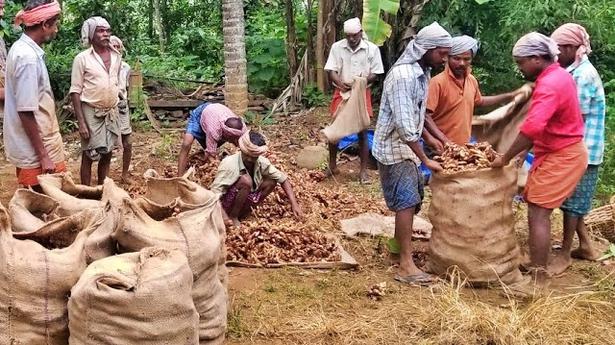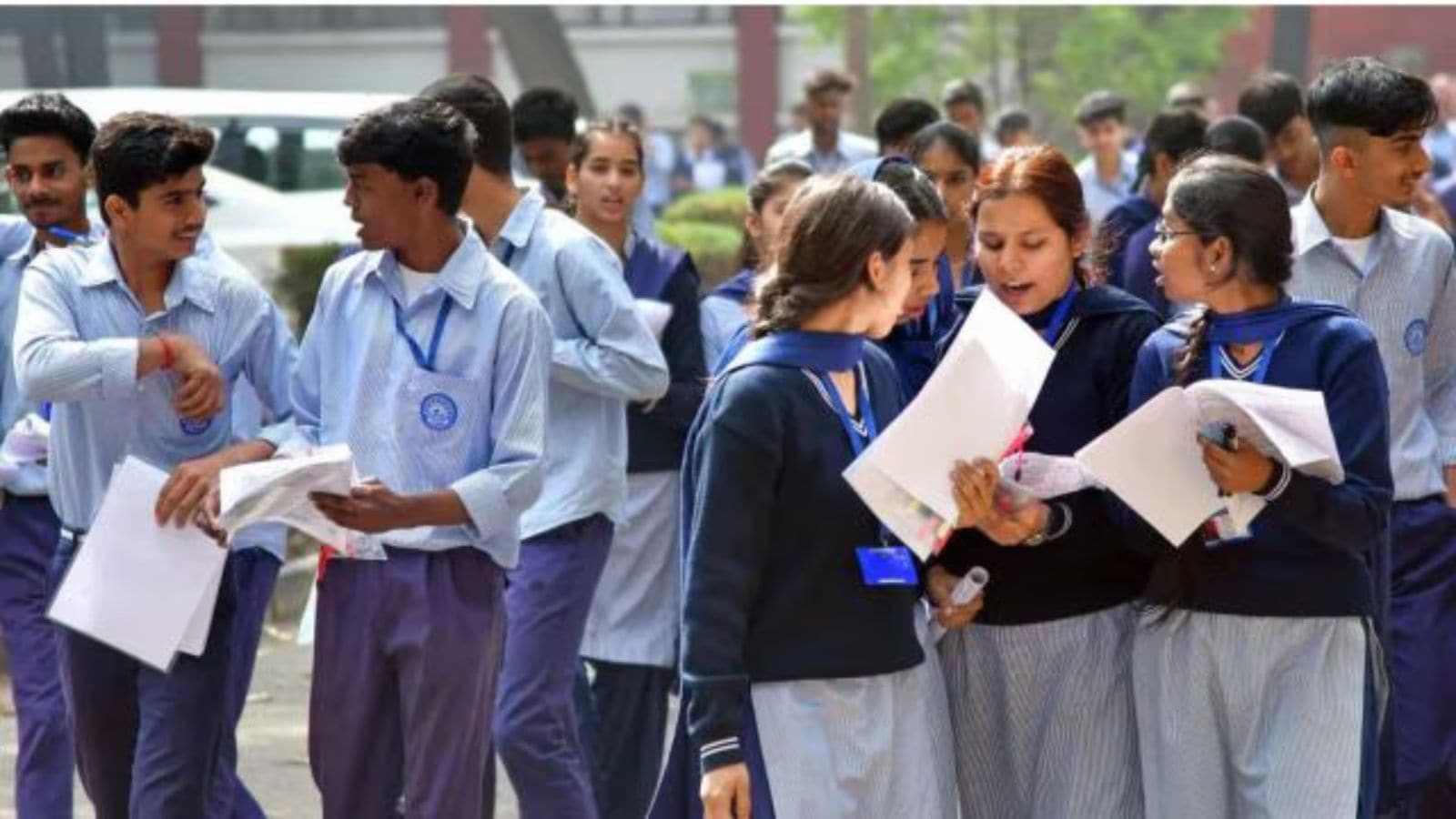Ginger farmers in Kerala and Karnataka usually prefer to harvest ginger rhizomes by the first week of April as they get the maximum price for their produce at that time. But more than 60% of the farmers, especially those cultivating ginger rhizomes in Karnataka, are yet to harvest their crop owing to the sharp fall in the price of the produce.
The farm gate price of the produce in Wayanad on Thursday was ₹1,000 to ₹ 1,100 a bag (60 kg) as against ₹2,300 a bag during the corresponding period last year. The price had gone up to ₹8,000 a bag a few years ago, which prompted many farmers to take up ginger cultivation.
Overproduction and diseases affecting the crop, especially bacterial wilt disease affecting matured rhizomes, are the major reasons for the low price of the produce, Arun Anto, a ginger trader, said. Moreover, there have been no demand for the produce from northern India after the outbreak of the pandemic, he added.
“The area under ginger cultivation had increased nearly threefold this season owing to the anticipation of farmers that price might increase this year. The expansion of ginger cultivation areas in other States like Maharashtra and Jharkhand also caused the oversupply of the produce,” he said.
“An average yield of ginger from an acre is 18 to 20 tonnes. But it declined to 10 to 12 tonnes this season owing to fungal diseases in many parts of Karnataka,” P.V. Eliyas, a farmer, said. “We were getting an average price of ₹3,000 to ₹5,000 a bag. But the price we got since last September was ₹850 a bag,” Navrang Mohanan, general secretary, Kerala Ginger Growers’ Association, (KGGA), told The Hindu .
K.K. Mathew, a farmer from Meenangadi, says he had invested nearly ₹60 lakh on the crop on 10 acres of leased land at Sargur in Mysuru. But, he is not sure if he can recoup half the amount at the prevailing rate.
The condition of other farmers was not different. Moreover, the agreements signed between farmers and landowners would come to an end by the end of May in many parts of Karnataka. If a farmer wanted to keep the rhizomes on the land, they had to pay a huge amount as rent after the tenure, he added.






